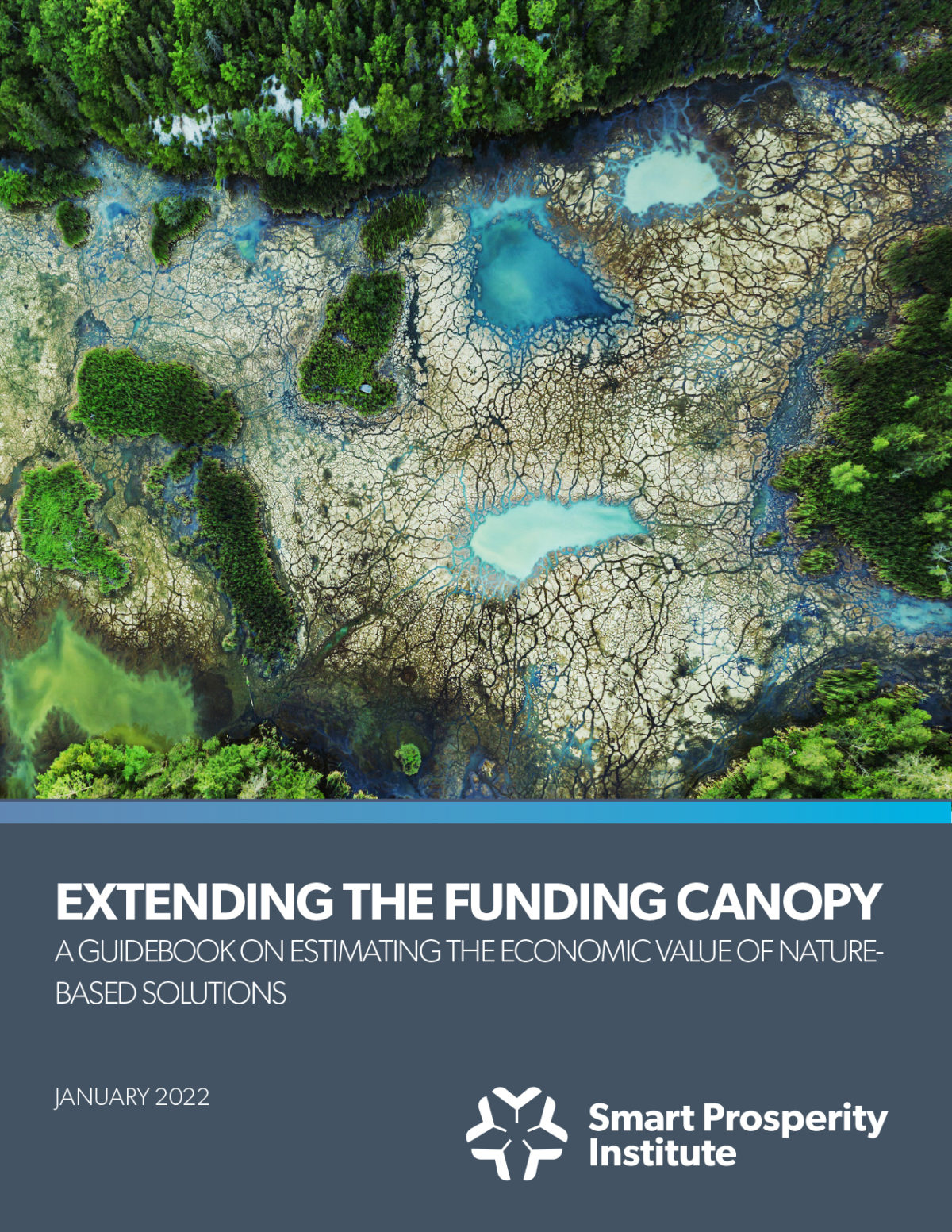Investing in conservation, restoration of nature, and sustainable resource management should be central components of a resilient economic recovery. These investments create economic value and jobs and are critical to meeting Canada’s climate change and biodiversity objectives. However, there are barriers to public and private financing of these projects which mean that they receive less financing than would be justified by their potential economic contributions, not to mention their environmental and social benefits. One such barrier is the fact that practitioners proposing projects that offer nature-based solutions (NBS) to problems like climate change or water management often lack the capacity and data to make an economic case for their projects. This puts them at a disadvantage as they compete for funding with technology-based solutions that tend to have better access to data and familiarity with methods to estimate their project’s impact on revenue streams, cost savings, jobs, and economic output.
This Smart Prosperity Institute report, supported by Metcalf, aims to help NBS practitioners make an economic case for NBS projects by discussing simple, publicly accessible methods for estimating 1) revenue streams and cost savings due to increased ecosystem services, and 2) impacts on local jobs and economic output, while sharing four case studies in different regions across Canada.


